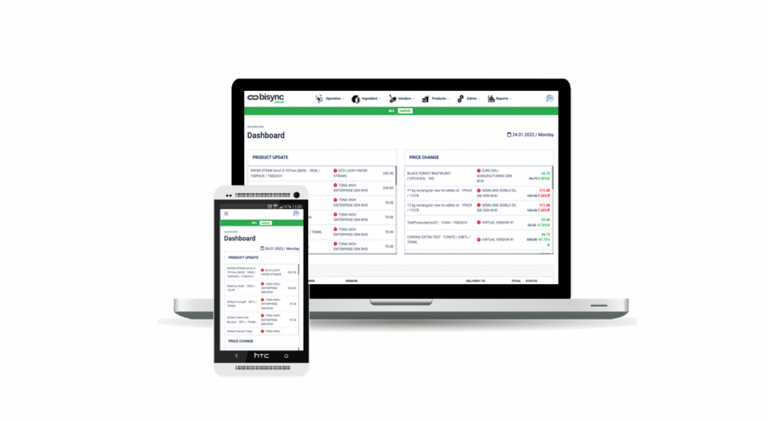The issues we’re facing today
A year on after we start to live with COVID-19, we still face a combination of problems due to lack of resource and recovering economies around the world, and the result in increased demand.
Lots of supply chains, particularly in the food and retail sector, operate on what is known as ‘just in time’, whereby stocks are replenished as and when needed. It is a strategy in supply-chain management which ensures that retail and manufacturing can continue to service the needs of their customers but without the need to hold vast quantities of stock.
This has been the way of working in the retail and F&B sector for many years and most customers have continued to be oblivious and take for granted that supplies will be available when you next turn up at your local retailer. It works.
This can have an impact on retailers and restaurants operators as they are expected to continue to supply the needs that consumers wants. That’s a problem!
Procurement professionals across the globe have taken center stage, particularly over the last year in managing these risks and seeking to work across supply chains to minimise the impact of supply woes. It’s just, like a lot of things, we don’t notice until things go wrong.
Why keeping track of the supply chain is important
Procurement has evolved over the last two decades from a back-office function with tons of print-outs, cross referencing from one form to another, to a strategically critical and vital business function.
But mildly, if Procurement departments are not ahead of the risks in supply chain, it has the potential to shut down a business.
Not only that, but the increasing importance of ensuring supply chains are operating efficiently whilst at the same time reducing carbon emissions, creating employment, training opportunities and providing economic opportunities to small and medium businesses, ensures that procurement professionals have to be multi-tasking superheroes on a daily basis! We don’t wear a cape, (although I have thought about it) but there is a lot a pressure on those shoulders.
What Has all this got to do with the administrator or business manager on ground?
Put simply, supply chain is vital to any business. All businesses operates successfully on the basis of supplies, be it retail supplies, food supplies, software systems, gas and electricity, supply staff, the list goes on… I don’t need to say that if your supplier does not turn up, that will cause not only major potential closure issues but reputational damage too.
What can be done?
There are some small steps that you can take to seek assurance:
- Understand which of your suppliers are strategically critical to your business? Ask yourself, regardless of how much you spend, if you did not receive those supplies within your ordering period, could it have the potential to close your business? If that’s the case, and it’s a simple deliberation, then that supplier, that contract is what we (in the procurement profession) would describe as ‘strategically critical’. Could you easily replace them with another like for like supplier? Simply classifying your contracts/suppliers on this basis will be a huge step forward. So you don’t waste energy on worrying about contracts that are not important.
- Do you have a written contract? When was it last procured? Whose terms are you on? What do those terms say in the eventuality of failure to perform? Is the supplier reporting to you on a regular basis? Again, for strategically critical contracts this is essential
- It’s a simple one but talk to your supplier. Call them. Ask them are they experiencing any problems with supply deliveries at present. Do they foresee any issues in the near future? What is their plan? How are they dealing with it? Does it impact the service/contract? Is there anything YOU can do to help? A lack of visibility in your contract, not knowing when supplies will be delivered, not knowing what is being delivered, not knowing issues faced by a supplier can cause major worry and potential issues.
- Can you diversify your specification? If your supplier is reporting a lack of chicken, then put simply, like we would do at home, adjust your specification and menus. This will help alleviate pressure on the supply chain. Your supplier will ensure you continue to receive some supplies to keep operating.
- Think about lead-times. If your supplier is reporting potential issues, then speak with them about supply lead times. Do you need to get your orders in now, for example, so it allows suppliers to plan and prepare accordingly? In supply chain crises, the first casualty is usually the ‘ad-hoc’ requests and orders that come through. Suppliers, generally will not want to let-down committed and contracted customers. Hence, why it’s important to check you have a contract.
- If you don’t have a contract or assurance over supply chain, then this needs to form your most important procurement strategy for the coming quarter. The risks are too high not have a contract in place for strategically critical spends. Or if your contract is coming up for renewal, public procurement procedures only allow limited circumstances to ‘roll over’ and extend contracts without the need to re-tender them.
Yes, public procurement processes can be complicated and cumbersome, but they can also be highly effective at delivering a value for money competitive outcome with robust terms and protections for buyers. With the right, timely advice, we can help you get a procurement plan in place and advise you through a procurement process. That’s why we’re here.
How we can help?
Supply chain issues have always been with us and I suspect always will be, particularly in a globalised supply chain and a world competing for ever reducing resources. In most cases, those major supply chain issues are dealt with in the business world through competent and highly skilled procurement professionals.
Now, how can Bisync help you with all these headache? Firstly, our system are designed to be simple so any of your team can use it. Secondly, with an extensive database of vendors, you don’t have to worry about being stuck with one supplier and not able to get stocks when that supplier runs out of supplies. Thirdly, as a SaaS solution, you can bring our system everywhere, in your phone, in your computer or even in your tablet, anywhere, any time.
Drop us a message, send us an email at sales@cubevalue.com , let us help you ease your headache.






